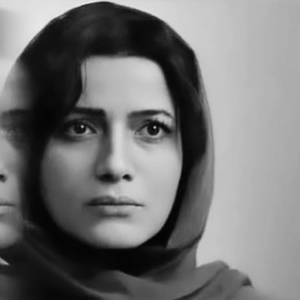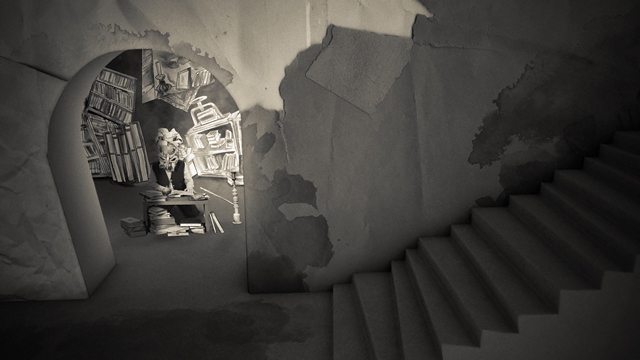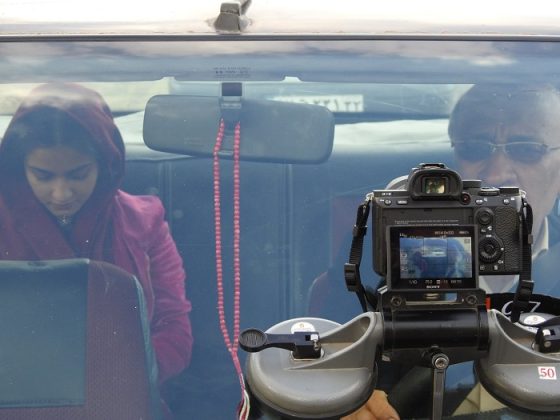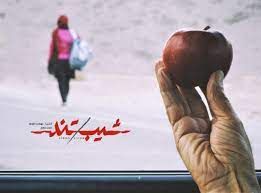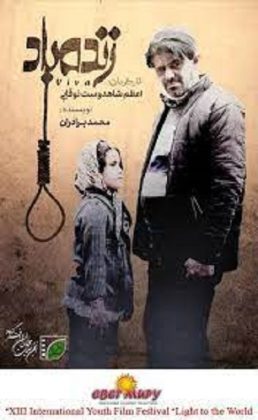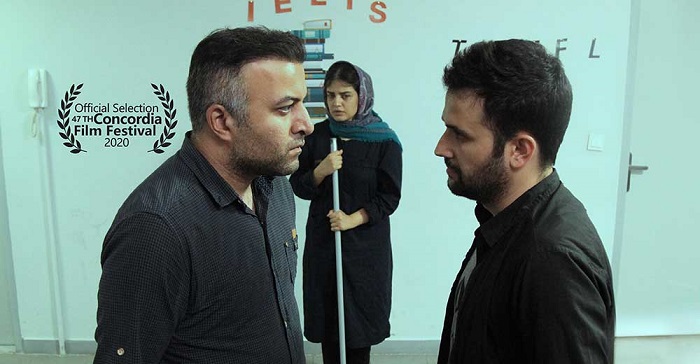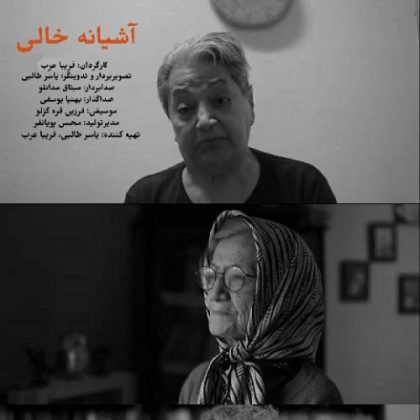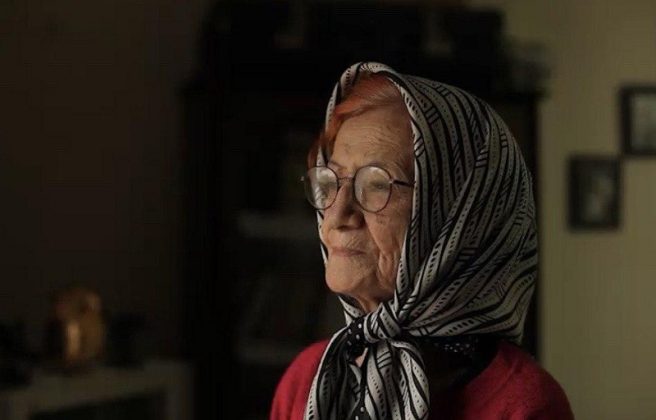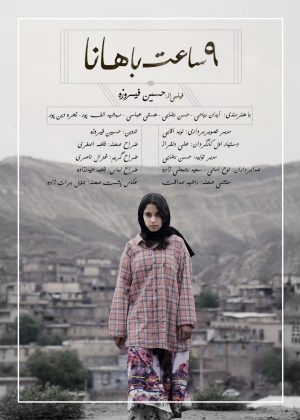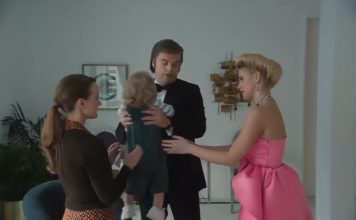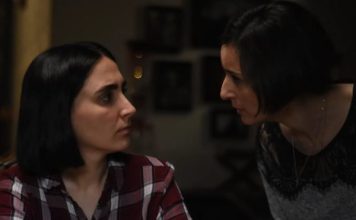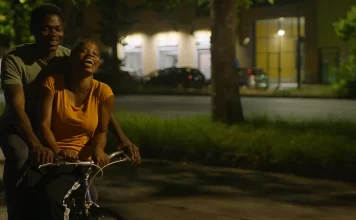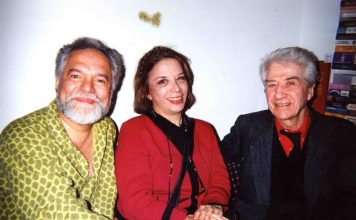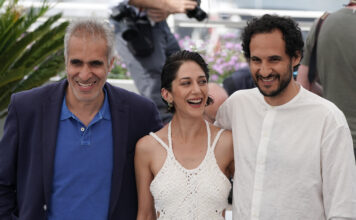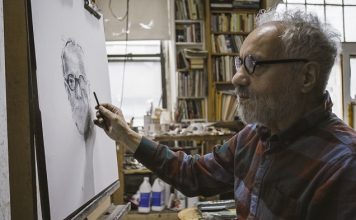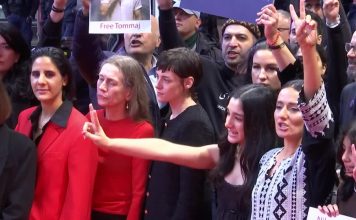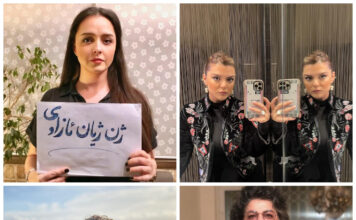By Ahmad Rafat
The first festival of documentaries, short films, and animation by Iran-based female directors was recently held in London. The two-day festival was co-organized by the Persia Educational Foundation (established in 2016) and by London’s Film Buzz Festival.
Held at the Curzon Victoria cinema, the festival featured 20 films — documentaries, short films, and animation – as well as talks and a reception.
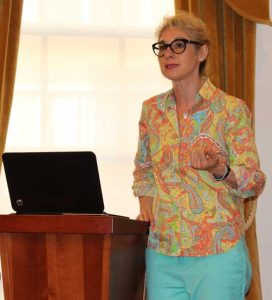
“The purpose of this festival was to familiarize British audiences with the social realities of Iran and the blatant violation of human rights in the Islamic Republic,” said Tahirih Danesh, the executive director of the Persia Educational Foundation, who was interviewed at the event. “We were looking to introduce British audiences to the social realities of Iran, so we chose films by artists currently living and working in Iran, and made the selection in collaboration with the Film Buzz Festival.”
“The majority of the festival’s audience were non-Iranians, as Iranians are already well aware of what is happening in their country,” she added.
Each of the films shown at the festival focused on a specific social issue plaguing Iran today.
[Spoiler alert: some of the descriptions below give the full plot of the film in question.]
One of the most beautiful titles was a short film called Zende Bad directed by Azam Shahdoust. Set to be screened at the “A light on the World” festival in Russia in August, the film tells the story of a man who makes a living as a garbage collector. Mixed in with the trash outside the local prison, he finds a noose. Back home, with the help of his wife and young daughter, he salvages items from the trash that the family can sell. Then, using the noose, the man creates a swing for his daughter. An instrument of death is recycled into a recreational object, a source of happiness.
Another notable title was Nine Hours with Hanna, directed by Hossein Firouzeh, which won the best short film director award at the Pembroke Film and Art Festival in the U.S. and the Grand Prize at the Astoria Film Festival, also in the U.S. The film addresses a serious issue in Iranian society today: child marriage. It portrays girls who are sent from school to their husbands’ homes at a very young age, and are forced to assume the roles of wives and mothers while they are still children.
According to current laws in the Islamic Republic, the minimum age for marriage for girls is 13 years, although with a court order, girls as young as 10 can be married off to much older men. According to figures issued by Iran’s Statistical Center, between the winter of 2021 and the end of the autumn of 2022, at least 27,448 cases of marriages involving girls under 15 were registered in various parts of Iran. This trend has been on the rise in recent years.
Here are some of the other films that were screened at the festival:
- Shibe Tond (“Steep Slope”) is a collaborative work by Behjat Davoudi and Effat Ajam, and tells the story of a young girl who intends to illegally leave the country in search of a better life. The same director also screened a documentary about one of the most famous makers and players of the dotar, an instrument from the southern region of Khorasan, in the festival.
- Captain by Pouria Soleymani is all about girls who want to play football. One agrees to marry an elderly man to be able to play, because her father refuses to send her to training sessions. Another agrees to study a subject at university against her will just to please her father, as this is the only way for her to be allowed to join the football team. The girl in the third story has more complicated circumstances: Her drug-addicted father does not object, but her brother does not want his “honor” to step on the football field and beats her severely for her defiance. This is where the father steps into the story and exposes his deserter son in order to save his daughter.
- Pass by Elyka Abdollahi addresses another ethical problem in society: fraud. Mina Hamedani won the Best Actress award at the Madrid International Independent Film Festival for her role in this film. The Best Screenplay award at the Mallorca Film Festival in Spain also went to Pass.
[aesop_image img=”https://kayhanlife.com/wp-content/uploads/2023/06/پاس.jpg” panorama=”off” credit=”KL./” align=”center” lightbox=”on” captionsrc=”custom” captionposition=”left” revealfx=”off” overlay_revealfx=”off”]
- Blood by Sahar Mirzaiyanfar — which has been presented in more than 50 international festivals and has won 20 awards so far — starts with scenes of a wedding and ends just a few hours later with the murder of the new bride by her own father. The narrative of virginity and a bloody handkerchief is there to prove it. It’s the story of an honor killing – of a drop of blood that can create a disaster.
- 1133 by Hoori Shafieiyun — whose actress, Maryam Mohammad Khani, won the best actress award at the British Film Buzz Festival – is a story about rights that women lack in the Islamic Republic. 1133 refers to the article in the Islamic Republic’s legislation that governs divorce. Based on this article, a man can divorce his wife, yet a woman can only refer to the court for a divorce in specific cases, such as brutal violence on the part of the husband (according to articles 1119, 1129, and 1130). In this film, we witness the self-mutilation of a woman who wants to create court-worthy evidence to demand a divorce from the husband who has abandoned her.
- One of two films on the theme of loneliness is a beautiful animation work called “A piece of loneliness” directed by Elahe Ghomeyshi. It portrays a man living in a house where only one book can be seen. He lives with his memories and eats the pages of the book to hide objects that remind him of his childhood. One of these objects, which reminds him of his childhood, is a mouth organ that he cannot find.
- The other film on the theme of loneliness is “Empty Nest” by Fariba Arab. It’s a documentary made in one of the nursing homes in Tehran. The director, who was invited into the nursing home to make a promotional film, decides to sit down with three of its residents — a retired literature teacher, a female nurse and a former female government employee. The film was shot before the Coronavirus epidemic. After the worst of the pandemic is over, the director returns to the nursing home to show the edited documentary to the three protagonists. Tragically, she discovers that all three have passed away during the pandemic. The story is about the loneliness experienced by elderly Iranians living in nursing homes, as none of the children of these three individuals has any interest in watching a film that depicts their parents’ lives. The words of one of the three protagonists – a nurse who served on the front line during Iran’s eight-year war with Iraq – take on great meaning: The more educated children are, she says, the less affection they have, and all of my children are educated.

